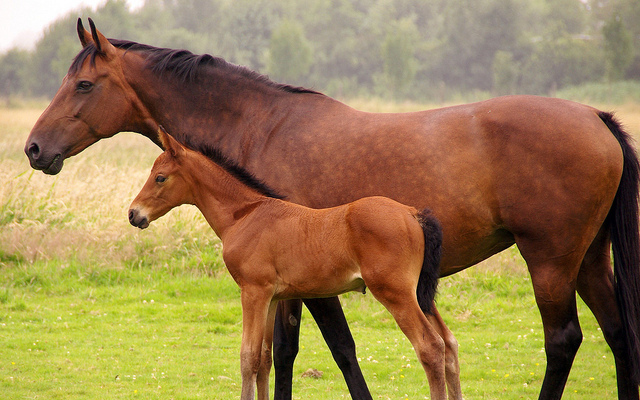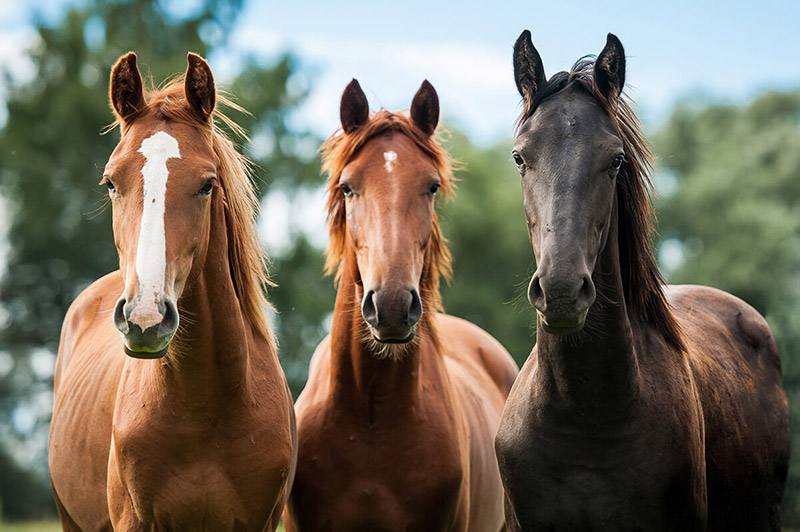Section 2 | Respiratory Diseases in Horses: Rhodococcus equi
Industry
Page 11 /
Prevention of Pneumonia
Three keys to prevention of Rhodococcus equi pneumonia infections include1:
- Screening for early detection of infection
- Environmental management
- Passive or active immunization
Treating all foals with antimicrobial drugs is not recommended, as it has not been found to be conclusively effective and creates concerns regarding the development of antimicrobial resistance1,2
Talk to your veterinarian about prevention strategies for your farm!
Screening for Early Detection
Advanced pneumonia due to Rhodococcus equi has a very poor prognosis. This means it is important to identify affected foals early in the disease course.
Many screening techniques have been described including:
- Visual inspection of foals for clinical signs of disease
- Monitoring rectal temperatures
- Blood testing for inflammation
- Imaging of the lungs with an X-ray or ultrasound
Work with your veterinarian to develop a screening program for your farm to ensure that foals are properly identified and monitored to prevent the severe consequences of Rhodococcus equi
Environmental Management
Environmental management has a significant influence on the risk of Rhodococcus equi infection development in foals. Specific factors that have been associated with an increased risk of infection include high foal stocking densities and housing large numbers of foals and mares together.
The Key: Reducing stocking density can have a big impact on preventing infections. Housing foals in well-ventilated and dust-free areas, foaling on pasture, and avoiding dirt paddocks are other preventative measures to consider.
Passive or Active Immunity
Research has shown that the use of licensed and commercially available immune products (hyperimmune plasma containing antibody against Rhodococcus equi) may aid in the prevention of pneumonia9,5. These products contain plasma (a component of blood) obtained from horses that have been vaccinated against the bacteria. The severity of pneumonia that occurs in foals given this product may be reduced.
Administration: It is common that at least 1 L of hyperimmune plasma is administered <2 days of age followed by an additional dose at 2-4 weeks.
It is important to note that this method is not effective in 100% of cases; proper screening and environmental management is still required.
What About Vaccination?
At this point in time, there is no licensed vaccine in North America that protects against Rhodococcus equi infection.
)
References:
- Giguere, S., N.D. Cohen, M Keith Chaffin, N.M. Slovis, M.K. Hondalus, S.A. Hines, and J.F. Prescott. 2011. Diagnosis, treatment, control, and prevention of infections caused by Rhodococcus equi in foals. J Vet Intern Med. 25:1209-1220.
- Coleman, M.C., G.P. Blodgett, K.E. Bevevino, R. Ivanek, K.J. Cummings, G.K. Carter, and N.D. Cohen. 2019. Foal-level risk factors associated with development of Rhodococcus equi pneumonia at a Quarter horse breeding farm. J Equine Vet Sci. 72:89-96.
